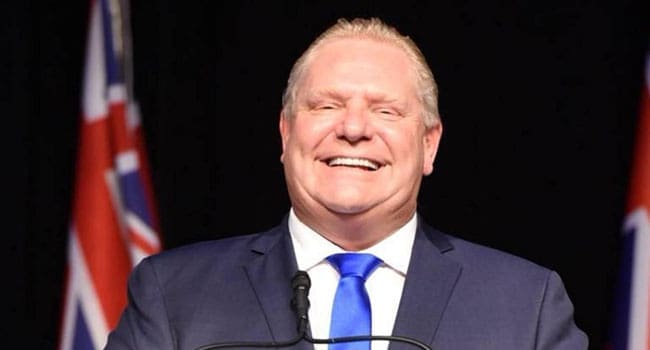 The word ‘expert’ has broad meaning today.
The word ‘expert’ has broad meaning today.
Many people are invited to discuss their experiences in areas like business, labour, medicine, opinion polls, politics and media. Some have a real depth of knowledge, while others engage audiences with tidbits of information.
Alas, many so-called experts are severely lacking when it comes to providing expertise.
A recent example is Ontario Progressive Conservative Leader Doug Ford’s decision to not have a campaign media bus during the upcoming provincial election. When media outlets went looking for experts for analysis on Ford’s decision, the analysis was lazy and predictable: Ford doesn’t want to face the media.
“One of the things that makes Doug Ford very attractive to people is his ability to sort of speak off the cuff and all that kind of stuff,” University of Guelph political science professor Tamara Small told the Canadian Press on April 5, “but that is also the stuff … that could become problematic.”
Queen’s University political science professor Jonathan Rose said, “It’ll be interesting to see if Doug Ford maintains that script and doesn’t do as many photo ops as the other leaders. The reason why you do that, of course, is to focus on the policy and avoid any kind of problems with Ford going off-script.”
Finally, Queen’s University political science teaching fellow Tim Abray felt Ford “is attempting to bypass the accountability function of the free press by limiting access to his campaign. … This should not be blown off as insignificant.”
This provided Ontario Premier Kathleen Wynne with the perfect opportunity to tell the Toronto Star on April 5 that “it “looks like there’s some hiding going on.”
The experts have spoken, so we must savour every word and nod approvingly.
Yeah, sure.
There were many expert opinions and many wrong-headed conclusions. Had they seriously considered the way modern politics is conducted, they would’ve arrived at the real answer.
Canadian conservatives have suggested for years that media buses aren’t necessary today. The old style of doing politics, which included carting reporters and columnists along to every campaign stop, has gradually been disappearing.
Think about it. Print publications are struggling and/or folding in Canada and beyond. Newsrooms are getting smaller, meaning the potential staff dedicated to a political campaign is shrinking. The growth of social media and online publications and ventures has created more flexibility for political parties, and less need for media buses.
Plus, there’s an economic argument against this old-fashioned campaign tool. Ian Brodie, former chief of staff to prime minister Stephen Harper, nicely wrote in a tweet on April 5: “If you operate a campaign with a fixed limit on expenses, then every budget decision is a zero sum game. A dollar you spend operating and staffing a bus is a dollar you can’t spend on something else.”
Ford is a conservative and businessman. He understands the need to rein in spending, even if relates to PC party funds rather than taxpayer dollars. This is the man who wants to stop the gravy train in Ontario, after all.
Plus, he’s not scared of the media – and his handlers aren’t scared of putting him in front of reporters. Does anyone seriously believe this?
This isn’t Toronto City Hall and the media circus that followed his late brother Rob is gone. Rather, Ford’s ability to communicate with people and the press brought him success in the PC leadership race, and continues to fill speaking halls and meeting rooms with ease.
Yes, Ford can sometimes be unpredictable, although he’s been as steady as a rock during his rise in Ontario politics. Then again, other political leaders, including Wynne and NDP Leader Andrea Horwath, have their moments of unpredictability, too. The criticism goes both ways.
The moral of this story? Listen to the experts with a grain of salt but reach your own conclusions with the salt shaker we call life.
Troy Media columnist and political commentator Michael Taube was a speechwriter for former prime minister Stephen Harper.
The views, opinions and positions expressed by columnists and contributors are the author’s alone. They do not inherently or expressly reflect the views, opinions and/or positions of our publication.

